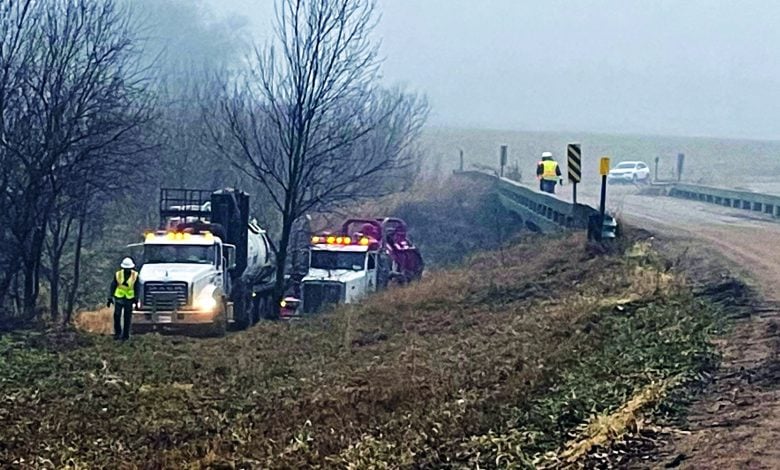Local News
Oil Spill Cleanup Continues


By Gordon HopkinsCleanup of the record oil spill from the Keystone Pipeline System continues. According to a recent statement from TC Energy, the company formerly known as TransCanada Corporation, an estimated 7,233 barrels of oil have been recovered from the creek. That is 13,877 barrels of oil and water.Monday saw snowfall in the area. TC …
Please login to view this content.